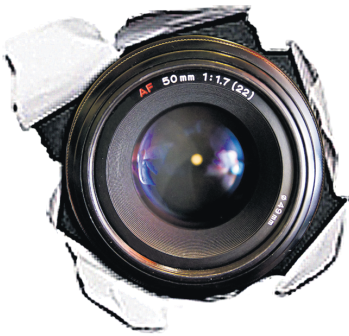Illegal spy cameras trap unwary guests
By Zhao Ruinan | China Daily | Updated: 2019-08-28 09:03

Protests in Seoul
Similar cases have been reported globally, with spy cameras being particularly prevalent in South Korea.
More than 6,000 such cases were reported in the country in 2017, and about 6,800 last year, up from 2,400 in 2012. More than 5,400 people were arrested for crimes related to spy cameras in 2017, but fewer than 2 percent were imprisoned.
Anger at the widespread use of hidden cameras prompted a series of protests last year in Seoul, the capital, when more than 50,000 women took to the streets to demand tougher sentencing for voyeurs.
Two months later, 8,000 workers were assigned to inspect the city's 20,554 public restrooms, a move critics said would not solve the root cause of the problem.
Seoul is also battling illegal filming in the accommodations sector, with a special task force consisting of government officials, police and the public being formed in June to inspect hotel rooms.
But while authorities are supposed to impose stricter penalties on voyeurism, the hotels and clothing shops cannot ignore their responsibilities.
Qiu Baochang, director of the Beijing Lawyers Association's Consumer Rights Protection Committee, said, "Business operators have an obligation to protect customers' privacy."
Under the law in China that protects consumer rights and interests, business operators must guarantee that the goods and services they supply meet personal or property safety requirements.
Wang, the law professor, said: "When a customer pays for a hotel room, he or she forms a contractual relationship with the operator. Contract law also has regulations stating that the room provided should be suitable for living, which obviously does not include the installation of hidden cameras. Consumers can seek compensation from hotel operators, even if they were not the ones who set up the hidden cameras."
Bai Xiaoli, a lawyer at the Anli Partners law firm in Beijing, suggested the authorities could also send special teams to carry out regular inspections of hotels and shopping malls, as South Korea has done.
The former judge said authorities should provide legal instructions for victims to safeguard their rights. For example, the Consumers Association could set up a "green channel" for complaints.
Zhang, the lawyer, said the crux of this growing problem may be due to a longstanding social tradition in China.
"People in our country do not value their privacy very much. It is no big deal for some people if their ID number or photo are obtained and spread illegally online. This results in insufficient legal control over privacy infringements such as secret filming," Zhang said.
"If we want to root this out, we should also focus on how to enhance people's awareness of safeguarding their privacy. When the whole of society, including the government, pays more attention to privacy, then infringements such as secret filming may decline."
The government is stepping up efforts to crack down on voyeurism.
Late last month, the market regulation administration in Shenzhen raided a security products manufacturer, seizing 552 nonstandard spy cameras valued at about 60,000 yuan.
Some netizens on Sina Weibo are calling for people to be more careful about privacy infringement. They post short videos online, teaching people how to use special devices to detect hidden cameras.
One of the posts stated, "May we be the protagonists of our lives, not the ones under the lenses of others."
























